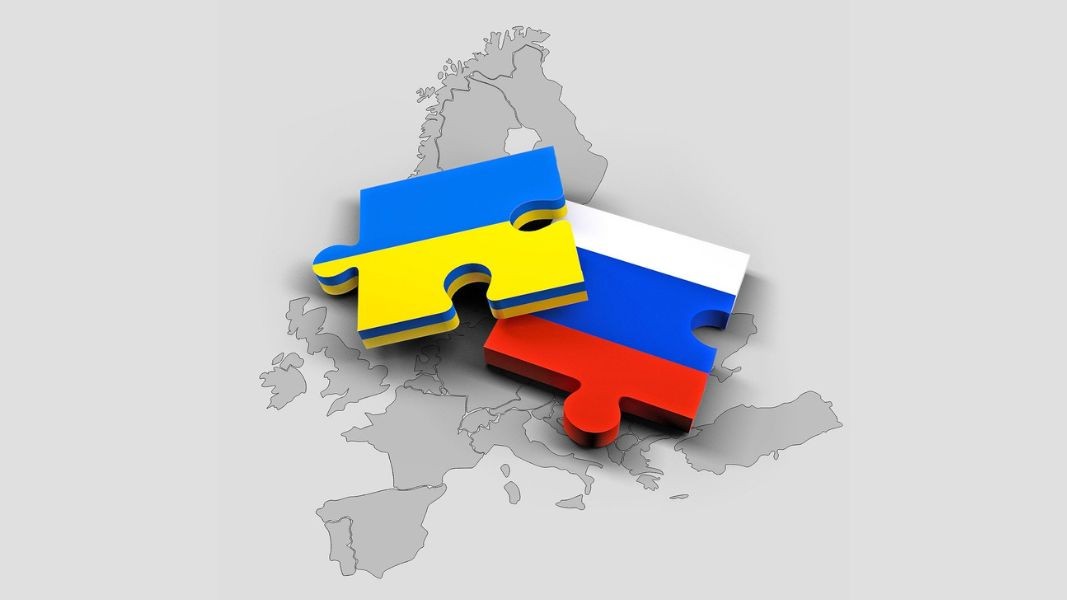Analysts of the Bulgarian Industrial Association (BIA) are unanimous that the long-term effects on the Bulgarian economy of the war in Ukraine, which has been going on for a year now, will be felt this and next year in a slowdown in the country's GDP growth for this year and next. The trade deficit for Bulgaria in 2022 will also have a negative impact.
The short-term "benefits" are seen in the growth of exports of diesel and gasoline from Lukoil's refinery and the fact that Bulgaria have become the second biggest global exporter of cooking oil, said Veselin Iliev, BIA director for international economic cooperation. The long-term negative trends are related to inflationary processes, shortages of raw materials, metals, inert gases with technical applications, especially after the closure of their largest producer in Europe (in Mariupol), said the expert.
Economic uncertainty, deterioration of credit ratings of a number of countries around Bulgaria are long-term trends and are much more important than short-term "benefits" for the country from fuel exports, the expert said.
His expectations for the GDP growth for 2023 are not optimistic.
Over this period, Bulgaria's trade with Ukraine has increased significantly, and this is without taking into account special production, for which the National Statistical Institute does not provide information, Iliev said. He referred to World Trade Organization (WTO) data for the last quarter of last year, which showed a multifold increase in Bulgarian fuel exports to Ukraine, which accounts for the bulk of the growth in exports to that country. Before the war Bulgaria exported on average 1-2 million dollars worth of fuel per quarter and now the export stands at USD 200-300 million. A considerable increase, though not in the volume of fuel, is also seen in the export of glass: from about USD 2 million per quarter before the war to USD 10 million now. The export of plastics and machinery has also increased.
In general, a significant part of the commodities Bulgaria exports to Ukraine shows growth, although not as sensitive as in the case of fuels, the expert said.
According to official statistics, Bulgarian exports to Ukraine increased from BGN 794 million to BGN 2.249 billion at the end of last year, the expert said, pointing out that WTO data for the whole of last year has not yet been published.
In the case of imports, according to the NSI, the change is from BGN 1.634 billion in 2021 to BGN 3.412 billion.
According to WTO data, oilseed sunflower is in the first position in imports from Ukraine to Bulgaria, Veselin Iliev said. He pointed out that before the war the problem for Bulgarian oil processors was the export duties imposed by Ukraine on the export of a number of food raw materials, including oil sunflower, which did not allow to buy cheaper raw materials from our oil processors. With the war, however, these restrictions have been lifted and this led to an increase in imports of oil sunflower from Ukraine last year, comparable to that of Bulgarian fuel exports to Ukraine, the expert said. If earlier we bought oilseed sunflower from Ukraine for 8-12 million dollars per quarter, now we buy for 250 million dollars. Another item in our imports from Ukraine, which is growing significantly, is unrefined oil (sunflower, rapeseed). The comparison shows that now per quarter our imports reach up to USD 100 million, compared to USD 3-4 million in previous years for the same period.
A decrease in imports is seen in industrial production due to the hostilities in Ukraine.
The forecasts for this year in trade with Ukraine are difficult and are entirely dependent on the course of the war and the damage to its industrial and energy infrastructure, the expert said.
The effects on Bulgaria's economy of the year-long war in Ukraine will be felt tangibly this year and next, said Dr. Shteryo Nozarov, economic advisor at BIA. They are expected to find expression in the contraction of GDP growth, according to the latest forecasts of the European Commission to 1.4%, as well as in 2024, because the projected growth will be 2.4 percent, and these are significantly lower growth rates than the standard - about 4 percent, Nozarov said in an interview with BTA.
The effect is intensifying because of high prices - of energy and other raw materials, which have led to a reduction in investment and this will also be felt this year and next, the expert said.
He pointed out, however, that the extent of the impact will depend mostly on the budget policy in terms of business support and the income of the population. "Part of this context is also our aspiration to enter the euro area, which sets the framework of a budget deficit of 3%." According to the expert, this means that all aid and compensation must be clearly targeted and diversified. There can no longer be support for all for fuel and energy, and this must be strictly differentiated in order to get within the framework of European policy and the requirements for our membership in the eurozone, Nozarov said.






